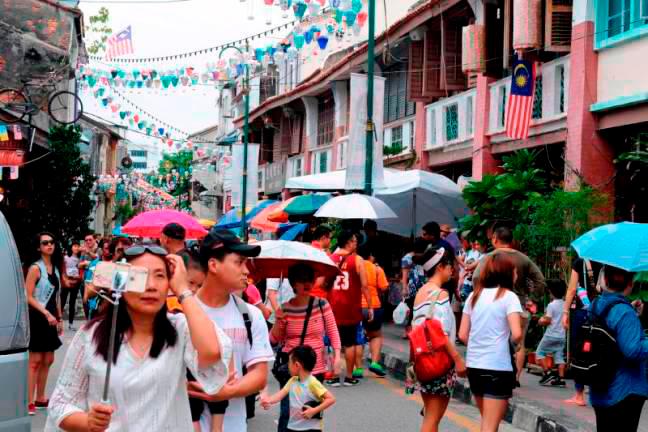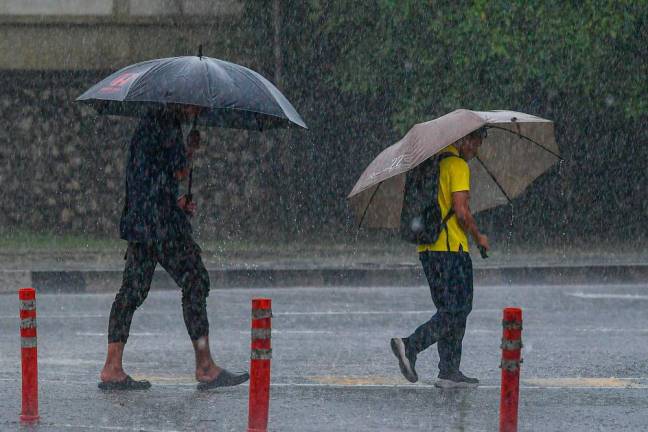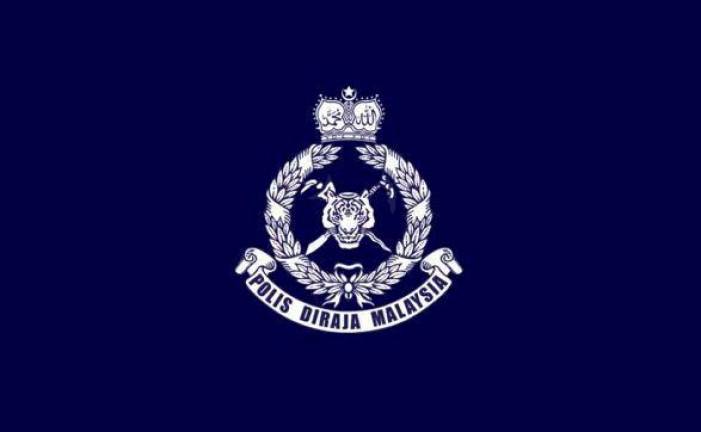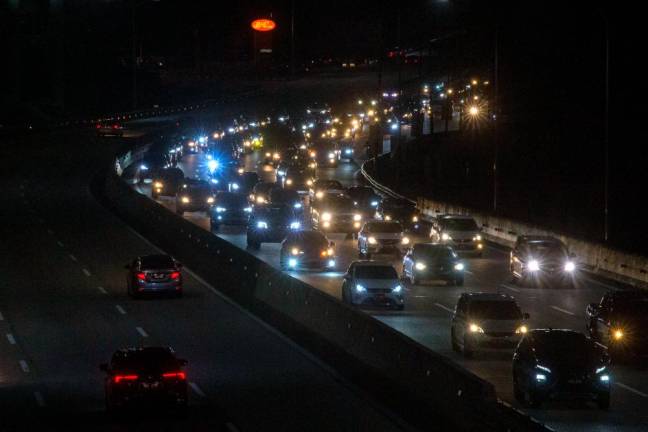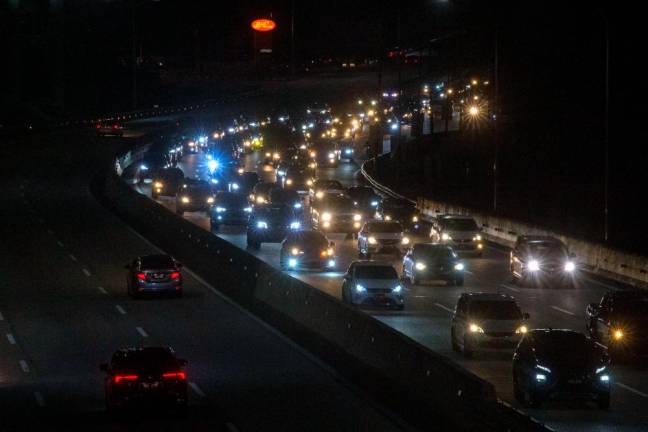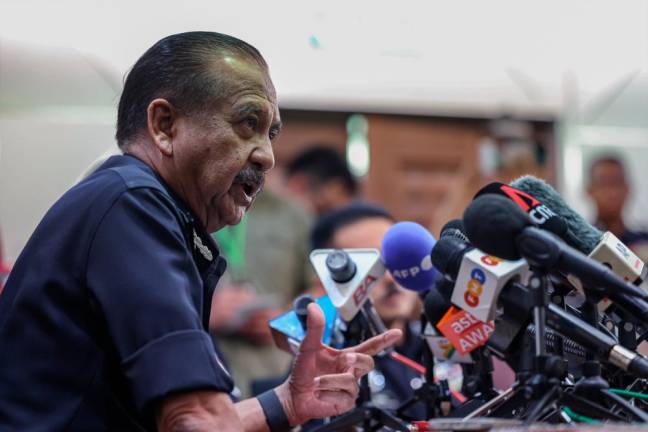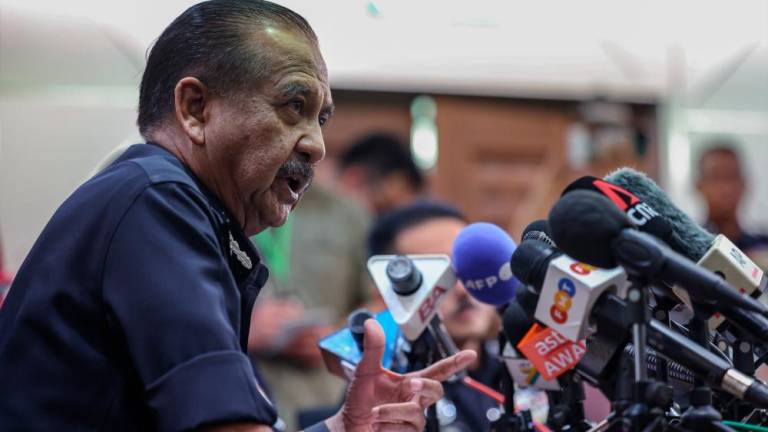MESRA Malaysia (Friendly Malaysia) is the name of a world-class training programme by the Tourism, Arts and Culture Ministry (Motac).
Its origin can be traced all the way back to 1986 when the World Expo was held in Vancouver, Canada.
The exposition organisers were determined to accord the highest standard of hospitality to visitors from near and far.
Hence, a programme was created to train volunteers as hosts for visitors from all over the world and tourists who may have different cultures and speak little or no English.
The training turned out to be highly effective and contributed to the huge success of Expo 86.
Later, American Express bought over the training rights of the programme and distributed it worldwide, naming it as Malaysia Host in Malaysia, Australia Host in Australia and so on.
In Malaysia, American Express collaborated with the Tourism Ministry in rolling out Malaysia Host in the late 1990s.
Later, this one-day programme was localised and renamed Mesra Malaysia.
Both Malaysia Host and Mesra Malaysia were equally powerful for one main reason.
Attendance certificates were awarded only to candidates that passed both practical and written tests.
Marks for practical were based on their level of participation, such as eagerness to ask or answer questions, provide comments or share experiences and make eye contact with the trainer.
Answers given to 10 objective test questions determined the other 50%. As such, training was highly interactive, lively and fun.
Participants paid full attention to the trainer, especially on points given emphasis as they were likely to be among questions in the objective test.
But for Visit Malaysia Year (VMY) 2007, Mesra Malaysia was drastically changed.
The one-day programme was expanded to two days, and both practical and written tests were dropped.
However, 20,000 tourism frontliners were trained under Mesra Malaysia in VMY 2007.
While the highest quantity was achieved, the quality of training plunged.
Mesra Malaysia was replaced by We Are The Host (WATH) in 2013, which was developed to prepare for VMY 2014.
But the new one-day programme was packed with more than 176 slides, too many to cover in a day.
As such, WATH was more like a briefing seminar than a training programme. In 2019, it was replaced by the current Mesra Malaysia.
There are a total of 85 certified trainers nationwide for this programme, which is compulsory for new tourist guides in order to obtain their guiding licence.
But with the cancellation of VMY 2020, free training of Mesra Malaysia by Motac for tourism personnel had largely been frozen.
Hopefully, a sufficient budget will be allocated to conduct free training over the next few years, as there is no better programme than Mesra Malaysia.
Although developed in 2019, it was updated in October 2020 and incorporated relevant information in the Tourism Satellite Account 2019.
As such, trainees got to learn the most important facts and figures on inbound and domestic tourism before the onset of the pandemic.
In 2019, tourism was at its zenith and the achievements should be our target for future years until they are surpassed.
It will be easier if industry personnel understand the various terms and sectors that make up the entire tourism industry and the important roles frontliners play.
The rest of the contents in Mesra Malaysia are timeless, as participants get to know and raise their awareness on visitors’ expectations and frontliners’ roles.
They will then learn and master interpersonal communication skills, which are essential to providing excellent customer service.
Instead of being limited to listening and responding, participants are also required to do the talking as well.
Every participant is required to share their best or worst experience and offer reasons why things went so well or, if badly, how it could be handled better the next time.
However, participants focusing on the future may choose to declare how they could improve customer service at a personal level immediately after training, or spell out the steps and time frame if they plan to raise customer service quality at the organisational level.
Such sharing and declaring would empower all participants to learn many things that are practical and applicable, instead of discussing academic theories with hardly any application as done in universities that churn out graduates with little industry relevant knowledge or skills.
In any case, all Malaysians ought to be friendlier with others, especially visitors and more so with foreigners as they are more sensitive than locals and it can be a good or bad thing.
Good because the little extra effort you make is noticed, and bad when they are misunderstood.
Malaysians are friendly by nature but some can be rude without realising it, especially those that are least exposed to the norms of others.
Local education emphasises study from books and many learned by rote. Sadly, social etiquette and courtesy are not given due importance.
Since the 1990s, I have conducted training for several thousand tourism and transport industry personnel, including frontliners such as tourist guides and taxi drivers.
Some were lucky to receive generous tips or earn huge shopping commissions.
While conducting training for Teksi 1Malaysia drivers in 2014, a driver shared in class that she was paid RM18,000 in commissions for just bringing a foreign couple to a teak furniture shop.
The couple must have happily bought a lot of teak furniture to be shipped home.
Last September in Langkawi, an e-hailing driver told me that another driver earned over RM30,000 shopping commissions in just one month for taking passengers to a popular shop on the duty-free island.
That happened before the Covid-19 outbreak in January 2020.
There was also the case of a taxi driver in Kuala Lumpur, whose taxi service was engaged by a foreigner for a few days.
Everything must have gone exceptionally well and before flying off, the tourist offered to pay the driver the cost for a new taxi to replace the old one he was driving.
While there is no need to kill others with kindness, it pays to be friendlier, especially with visitors.
Tourism frontliners should not look at foreign tourists they meet as though they are nothing more than passing ships in the night, never to see them again.
They ought to adopt a strategy of getting tourists to return.
They will come back for more if their experience is wonderful and unforgettable.
If they cannot make it during this trip, they will do so in their next trip.
Lest we forget, the greatest asset of a nation is its people and this includes tourism.
Frontliners must go out of their way to make foreign tourists feel at home in our country, similar to those that have taken up the Malaysia My Second Home programme and contributed to our economy.
Apart from being seen as friendly, it is better to treat customers as true friends and it is not difficult for service providers to befriend clients.
It is imperative to do so in the tourism industry as we are competing fiercely with our neighbours and want tourists to return repeatedly.
In Tourism Malaysia’s performance report for 2019 for each quarter, the percentages of foreign tourists citing “visiting friends and relatives” as the main reason for visiting Malaysia were 16.6% until March, 25.5% until June, 19.2% until September and 9.8% until December.
In fact, visiting friends and relatives in Malaysia has consistently been ranked only after holidays as the top main purpose for foreign tourists coming to our country and many were on return visits.
But most Malaysians, including those in tourism, are not fully aware of this reason.
Therefore, all tourism and transport frontliners must realise the important roles they play and must actively befriend their customers, passengers or guests when they get the chance to serve.
Get tourists to know they have a friend in Malaysia and you are looking forward to them returning.
And for frontliners that have served well as hosts, they would be able to confidently invite foreign tourists to come back.
Tourists who have thoroughly enjoyed a great holiday in Malaysia will be sharing their experiences with co-workers, friends and relatives back home.
YS Chan is Asean Tourism Master Trainer for travel agencies, master trainer for Mesra Malaysia and Travel & Tours Enhancement Course. He is also a tourism and transport industry consultant and writer. Comments: letters@thesundaily.com



